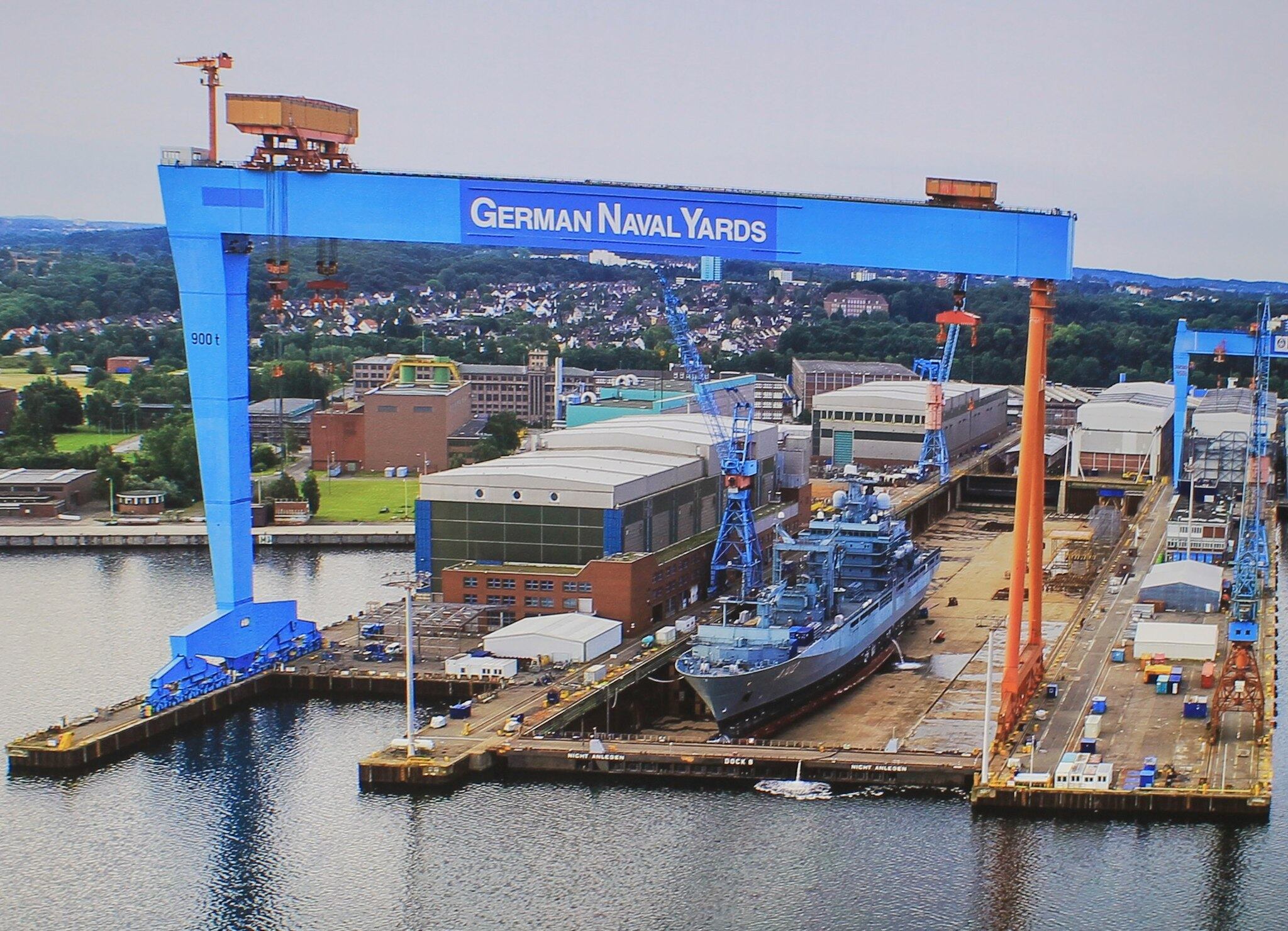COLOGNE, Germany — The German government is facilitating talks between major naval shipbuilders in an effort to set up a national conglomerate rivaling industry champions like Naval Group in France and Fincantieri in Italy, according to a local media report.
Negotiations to that effect have been ongoing behind closed doors since the beginning of 2020 between ThyssenKrupp Marine Systems, German Naval Yards Kiel, and Lürssen, broadcaster NDR reported Thursday.
Top executives from the companies confirmed the developments on Twitter, though without elaborating on the status of the negotiations.
News of the consolidation plan comes in the wake of German Naval Yards Kiel and TKMS losing a multibillion-dollar contract for new Germany Navy frigate-type ship, dubbed MKS 180. Dutch bidder Damen won the competition in January. The Dutch company has teamed with Lürssen for the program, vowing to do most of the construction work in Germany.
Still, the MKS 180 award angered industry lobbying groups in Germany, who argue that the country’s good-faith effort to carry out a European Union mandate for bloc-wide competition in major public programs backfired. Other European countries tend to keep such defense-related work within their own industrial ecosystems, the argument goes.
“The need for a German consolidation in naval shipbuilding has been repeatedly emphasized by us and our owner, Privinvest, during the past few years,” German Naval Yards Kiel CEO Jörg Herwig was quoted as saying in a statement. “Only a strong German player will be able to remain globally competitive and strengthen the German technology sector.”
Privinvest is owned by French-Lebanese businessman Iskandar Safa.
A request for a statement from the German Ministry for Economic Affairs and Energy was not immediately returned on Thursday.
RELATED

The idea of a unified German naval industry cluster runs counter to the narrative that the European defense market should focus less on national retrenchment and instead bank more on efficiencies through cross-continental mergers.
“I think we have to be honest with ourselves and admit that European defense acquisition will be mostly national, and maybe binational or trinational,” said Sebastian Bruns, a naval analyst with the University of Kiel in northern Germany.
Bruns said Lürssen’s role in the consolidation talks will be interesting to watch because the company has its foot in the door of the MKS 180 program — through Damen — and at the same time would benefit from a German industry conglomerate with the Navy as a guaranteed customer.
All the while, German Naval Yards Kiel has begun the legal process of challenging the Defence Ministry’s pick of Damen for the business. Letting the litigation play out in the courts is all but certain to cause a delay in the eventual delivery of the vessels to the sea service.
But in the course of future consolidation talks, the government could use its leverage as the broker — and ultimate approval authority — to put the protest by German Naval Yards Kiel to rest and let the MKS 180 program proceed swiftly, Bruns said.
“In the end, the most important question is what actual results will come out of this,” he said.
Sebastian Sprenger is associate editor for Europe at Defense News, reporting on the state of the defense market in the region, and on U.S.-Europe cooperation and multi-national investments in defense and global security. Previously he served as managing editor for Defense News. He is based in Cologne, Germany.








